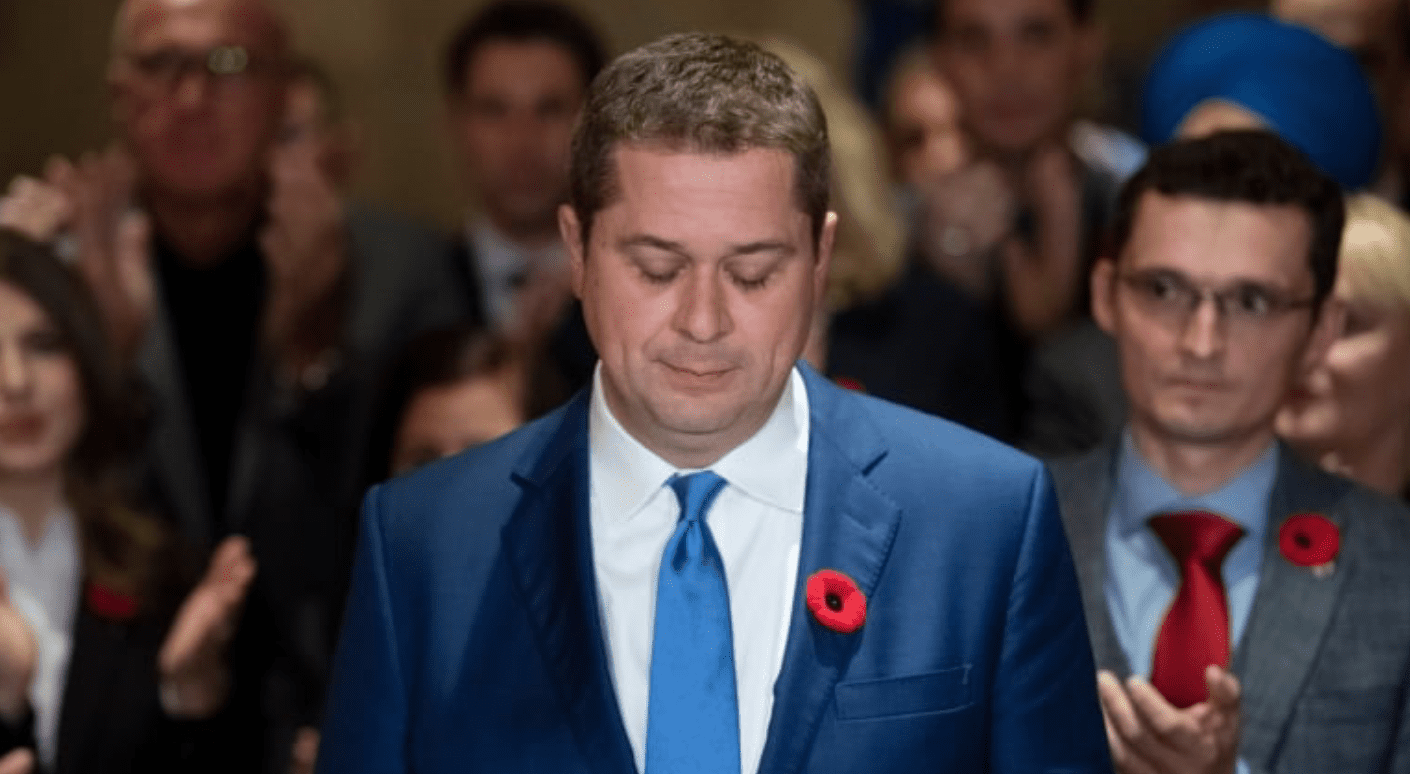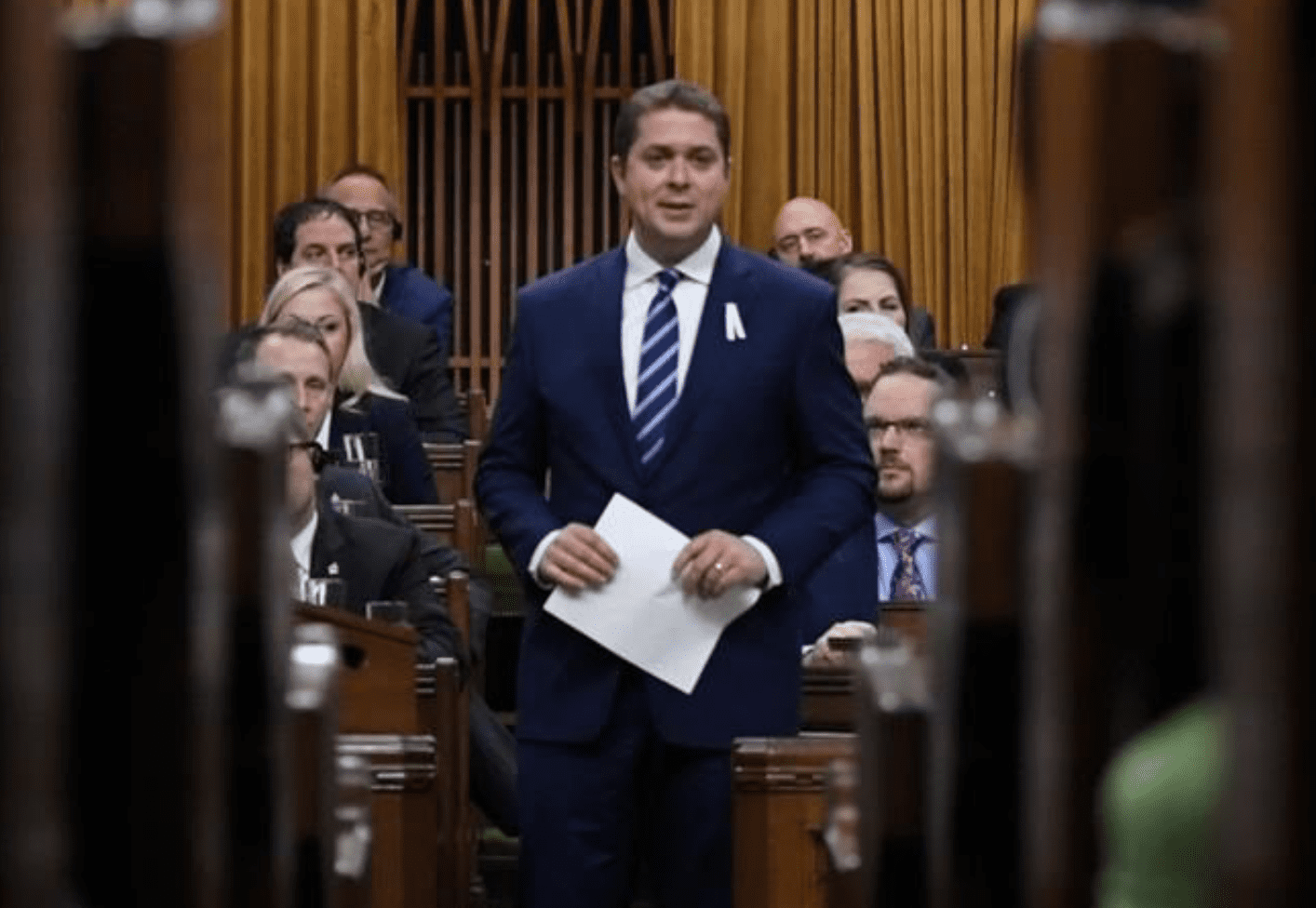Andrew Scheer's resignation as Conservative leader was probably not unexpected, but the timing of it was. After weeks of insisting that he was staying on and would undertake the usual leadership review process, and getting friends like Senator Denise Batters to produce videos to defend his position and insist that this was just like 2004 when Stephen Harper didn't win government on his first time out (even though this is nothing like 2004), Scheer made the sudden resignation on Thursday morning, just as word came out that he had been using party funds to pay for his children's private schooling — and throughout the day, there were contradictory accounts as to just who knew of this, who had approved it, whether the party would consider it an appropriate use of donor funds, and even whether this was what precipitated the departure.
It is tempting to say that Scheer may not have left a lasting impression on his party, but during the two years that he was at the helm, the tone in Parliament did shift, and not for the better. The biggest problem was that after a decade of petty dishonesties under the Harper government, which largely amounted to spin or torque, or more commonly lies of omission, what Scheer ended up bringing to the table was rampant, unchecked, bald-faced lying, which drove the political narrative in the country. I don't recall the same tolerance for this complete spinning of nose-stretchers during Rona Ambrose's tenure as interim leader if anything, the party seemed to be on a better path, one where they admitted that some of the stunts they pulled in government were probably the wrong way to go, and they began doing things like actually communicating with the media and just behaving like parliamentarians should. Not so under Scheer.
What was particularly galling about it all under Scheer's leadership was that they tried to hypocritically position themselves as the virtuous ones, riding high on the moral indignation of Justin Trudeau's ethical lapses (the two reports from two separate ethics commissioners having room for doubt in them if you read them). They went into the election decrying that Trudeau had "lost the moral authority to govern," and then proceeded to fabricate a number of supposed Liberal policies, and when called on the fact that they had in fact fabricated everything, Scheer's response was that Trudeau was a liar, so you couldn't believe anything he said while in the very same breath, lying about policies that did not exist. The utter gall of it all was breathtaking. The fact that it also turned out that he lied about his resumé that he had never been an insurance broker, and that he couldn't be honest about his own citizenship status were just adding to the pile when it came to Scheer's inability to tell the truth.
There is perhaps a bit of poetic justice that what may have been the cause of Scheer's undoing was the revelation of the fact that he had the party paying for his children's private schooling, after all of the protestations that it was he, not Trudeau, who lived a modest life, who grew up without a lot of money, that he knew that it was hard to make ends meet, that Trudeau was the one with the sense of entitlement. The more that comes out about people in charge of the Conservative Fund who were kept in the dark about what the money was going toward is all the more damning particularly as Scheer and his caucus made a habit of going after Trudeau for (transparently) reprofiling two assistant positions into nannies.
For all of Scheer's parliamentary fetishism the love of the institution that he spoke about when he ran to be Speaker in 2011, and which led to his renaming his critics as "shadow ministers" even though they don't actually operate like shadow ministers in the UK do the one thing he wasn't able to actually respect about it was the sense of gentlemanliness in politics. Instead it was snide remarks, lies, playacting scenes for social media (like the day he pretended that Trudeau was present and not answering questions, when Trudeau was away, and then proceeding to broadcast the fabrication), and simple incivility that disrupt the norms of how a parliament should operate. His actions denigrated Parliament and likely damaged his party along the way.
As for that party, it is an open question as to where it heads next. During his resignation speech, Scheer insisted that the Conservative Party was not a cult of personality, but he was wrong there it remains a cult of personality, but to Stephen Harper. Scheer didn't have enough personality, nor enough charisma of his own to turn the party into something more. His only legacy was to slowly creep the party further to the right, his leadership victory beholden to both the social conservatives in the party as well as the dairy lobby, and it was the social conservatism that became the anchor that dragged him down in the election.
Is there an obvious successor to Scheer? Not really. Many of the unsuccessful candidates in the previous leadership contest damaged themselves or proved incapable of either organizing or having a coherent message. Rona Ambrose isn't coming back (and may in fact be heading to Washington as the new ambassador, if the rumours prove true). Jason Kenney can't leave Alberta. Doug Ford can't learn French in six months, and his own popularity is in the tank. Lisa Raitt won't come back. Perennial leadership contender Tony Clement has made a return to politics impossible. Peter MacKay may try for a comeback, but will get nowhere with it. Add to that, the regional tensions within the party will come to a fore, with so much emphasis being placed on the prairies that it will be hard to get candidates that can balance those interests with those of Quebec and Ontario (to say nothing of the Red Tory base in the Maritimes). This will also divide the various factions in the party who recognize that they need a more progressive outlook if they want to win in an urban riding ever again, and their die-hard, social conservative, rural base. My only hope is that during that contest, there is an admission that they lost their way under Scheer, and that they find a path back to a kind of politics that isn't simply a house of lies.
Photo Credit: CBC News








